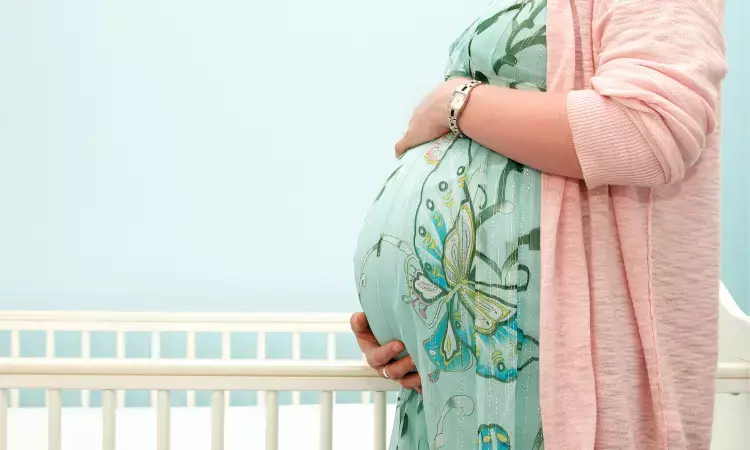- Home
- Medical news & Guidelines
- Anesthesiology
- Cardiology and CTVS
- Critical Care
- Dentistry
- Dermatology
- Diabetes and Endocrinology
- ENT
- Gastroenterology
- Medicine
- Nephrology
- Neurology
- Obstretics-Gynaecology
- Oncology
- Ophthalmology
- Orthopaedics
- Pediatrics-Neonatology
- Psychiatry
- Pulmonology
- Radiology
- Surgery
- Urology
- Laboratory Medicine
- Diet
- Nursing
- Paramedical
- Physiotherapy
- Health news
- Fact Check
- Bone Health Fact Check
- Brain Health Fact Check
- Cancer Related Fact Check
- Child Care Fact Check
- Dental and oral health fact check
- Diabetes and metabolic health fact check
- Diet and Nutrition Fact Check
- Eye and ENT Care Fact Check
- Fitness fact check
- Gut health fact check
- Heart health fact check
- Kidney health fact check
- Medical education fact check
- Men's health fact check
- Respiratory fact check
- Skin and hair care fact check
- Vaccine and Immunization fact check
- Women's health fact check
- AYUSH
- State News
- Andaman and Nicobar Islands
- Andhra Pradesh
- Arunachal Pradesh
- Assam
- Bihar
- Chandigarh
- Chattisgarh
- Dadra and Nagar Haveli
- Daman and Diu
- Delhi
- Goa
- Gujarat
- Haryana
- Himachal Pradesh
- Jammu & Kashmir
- Jharkhand
- Karnataka
- Kerala
- Ladakh
- Lakshadweep
- Madhya Pradesh
- Maharashtra
- Manipur
- Meghalaya
- Mizoram
- Nagaland
- Odisha
- Puducherry
- Punjab
- Rajasthan
- Sikkim
- Tamil Nadu
- Telangana
- Tripura
- Uttar Pradesh
- Uttrakhand
- West Bengal
- Medical Education
- Industry
High Maternal RBC Folate reduces risk of congenital heart disease in Newborns, finds study

Higher levels of RBC Folate in pregnant women are linked to decreased risk of congenital heart disease in newborns as per a new study that was published in the journal Annals of Internal Medicine. Higher RBC folate levels than currently recommended for neural tube defects may be necessary for preventing CHD in newborns.
Periconceptional folic acid supplementation is generally recommended for the prevention of neural tube defects, but it has also been suggested to protect against congenital heart disease (CHD). Maternal red blood cell (RBC) folate is the gold standard biomarker for folate exposure but the association between the RBC folate and CHD risk is lacking. Hence researchers from Shanghai, China province conducted a Prospective, nested, case-control study to investigate the association between periconceptional maternal RBC folate and offspring CHD risk at 29 maternity institutions in 12 districts of Greater Shanghai, China.
The participants included 197 mothers of offspring with CHD and 788 individually matched mothers of unaffected offspring from the Shanghai Preconception Cohort (SPCC) and were randomized by 1-sample Mendelian randomization using the methylenetetrahydrofolate reductase (MTHFR) C677T as the genetic instrument. Maternal RBC folate was measured before or at early pregnancy and conditional logistic regression after adjustment for covariates was used to estimate the odds ratio.
Key findings from the study:
- Case patients had lower median maternal RBC folate concentrations than control participants (714 nmol/L vs. 788 nmol/L).
- Maternal RBC folate concentrations and offspring CHD were inversely associated.
- The adjusted OR for mothers with periconception RBC folate of 906 nmol/L or more was 0.61.
- As per the Mendelian randomization, each 100-nmol increase in maternal RBC folate concentrations was significantly associated with reduced offspring CHD risk.
Thus, the researchers concluded that CHD risk in the offspring reduces with higher maternal RBC folate levels. They suggested further studies to check if higher target RBC folate levels than currently recommended for neural tube defect prevention may be needed to prevent primary CHD.
for further reading, click here: 10.7326/M22-0741
Chen H, Zhang Y, Wang D, et al. Periconception Red Blood Cell Folate and Offspring Congenital Heart Disease: Nested Case-Control and Mendelian Randomization Studies [published online ahead of print, 2022 Aug 23]. Ann Intern Med. 2022;10.7326/M22-0741.
BDS, MDS
Dr.Niharika Harsha B (BDS,MDS) completed her BDS from Govt Dental College, Hyderabad and MDS from Dr.NTR University of health sciences(Now Kaloji Rao University). She has 4 years of private dental practice and worked for 2 years as Consultant Oral Radiologist at a Dental Imaging Centre in Hyderabad. She worked as Research Assistant and scientific writer in the development of Oral Anti cancer screening device with her seniors. She has a deep intriguing wish in writing highly engaging, captivating and informative medical content for a wider audience. She can be contacted at editorial@medicaldialogues.in.
Dr Kamal Kant Kohli-MBBS, DTCD- a chest specialist with more than 30 years of practice and a flair for writing clinical articles, Dr Kamal Kant Kohli joined Medical Dialogues as a Chief Editor of Medical News. Besides writing articles, as an editor, he proofreads and verifies all the medical content published on Medical Dialogues including those coming from journals, studies,medical conferences,guidelines etc. Email: drkohli@medicaldialogues.in. Contact no. 011-43720751




